About io.net (IO)
What is io.net?
io.net is the world’s largest decentralized AI computing network designed to provide scalable, distributed clusters for machine learning (ML) engineers and AI developers at a significantly reduced cost compared to traditional centralized cloud computing services. By leveraging the power of decentralized infrastructure, io.net offers a more efficient and cost-effective solution for AI/ML workloads.
Key Features and Capabilities:
- Scalable Distributed Clusters: io.net can create massive clusters consisting of tens of thousands of GPUs, whether they are co-located in the same data center or geo-distributed across different regions, while maintaining low latency for users deploying AI models or running machine learning tasks.
- Low-Cost Access: Thanks to its decentralized nature, io.net allows AI/ML engineers to access compute power at a fraction of the cost of traditional, centralized services like AWS, Google Cloud, or Microsoft Azure, making it more accessible to startups and smaller businesses.
- DePIN Integration: io.net integrates with Decentralized Physical Infrastructure Networks (DePINs), such as Render (focused on image rendering) and Filecoin (focused on storage). These DePINs contribute compute capacity to io.net, further expanding the available resources for AI/ML applications. In return, these DePINs can monetize their excess capacity through io.net, creating an ecosystem that benefits both AI developers and infrastructure providers.
- Compute as a Currency: At the heart of io.net’s ecosystem is the idea of “compute as currency”. The platform enables AI/ML developers to access computing resources and AI infrastructure through a new type of economic model, where compute resources are treated as a valuable asset that can be monetized and exchanged.
How io.net Works:
- Distributed Network: io.net aggregates computational power from a decentralized network of participants, including both direct suppliers and DePIN partners. This decentralized approach allows it to scale resources dynamically, offering massive computing power for AI workloads without the limitations of traditional cloud infrastructure.
- Access to High-Performance GPUs: Whether for training complex AI models or running heavy machine learning algorithms, io.net’s platform provides access to powerful GPUs at a much lower cost compared to centralized services, significantly reducing the financial barriers for innovation in the AI/ML field.
- Monetization for Infrastructure Providers: Through io.net, decentralized infrastructure providers like Render (focused on image rendering) and Filecoin (focused on storage) can share their unused computational power. By doing so, they open new revenue streams by monetizing their excess compute capacity through AI and ML demand.
- Low Latency & High Availability: The geo-distributed nature of the network ensures that AI/ML developers can access computing resources with low latency, even when running globally distributed applications or training large-scale models that require high-speed processing.
Benefits for AI/ML Innovators:
- Cost Efficiency: Traditional cloud computing solutions are expensive, particularly when it comes to AI workloads requiring vast amounts of compute. io.net offers an affordable alternative, allowing developers to reduce costs significantly while still accessing high-quality computational power.
- Scalability: io.net provides the ability to scale computational resources on-demand. Whether it’s a small-scale project or a large-scale deployment, io.net ensures that developers can scale their workloads efficiently without worrying about infrastructure limitations.
- Access to Global Resources: With a geo-distributed network, developers can access computational resources from different regions around the world, optimizing their AI/ML models for global deployment with minimal latency.
- Decentralized Innovation: By decentralizing access to AI computing resources, io.net enables innovation to flow more freely, allowing smaller players to compete with industry giants. It democratizes access to high-performance computing, enabling more players in the AI/ML ecosystem to build and experiment with their ideas.



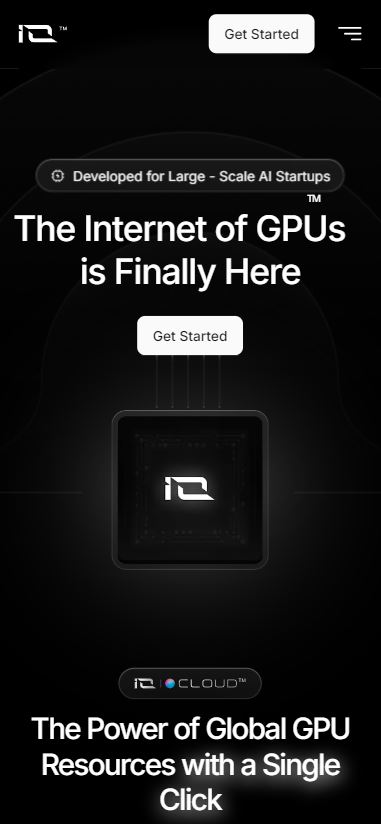
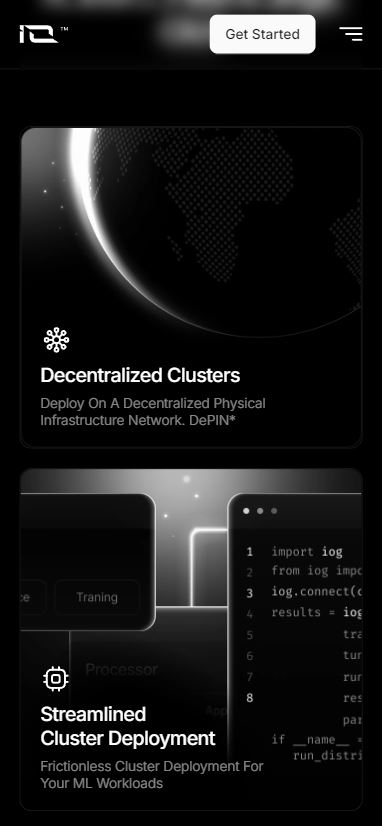
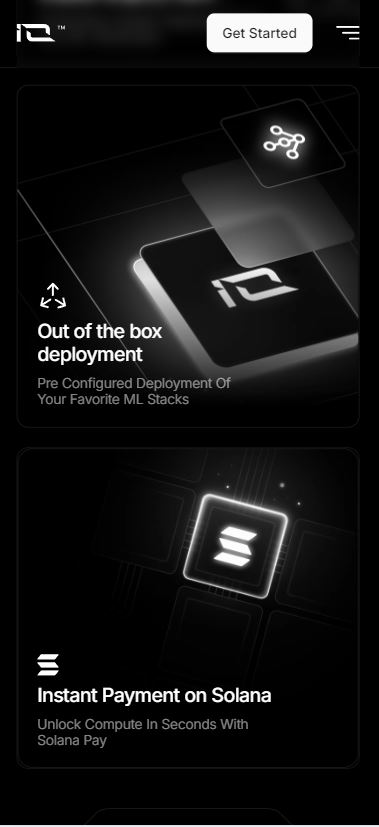
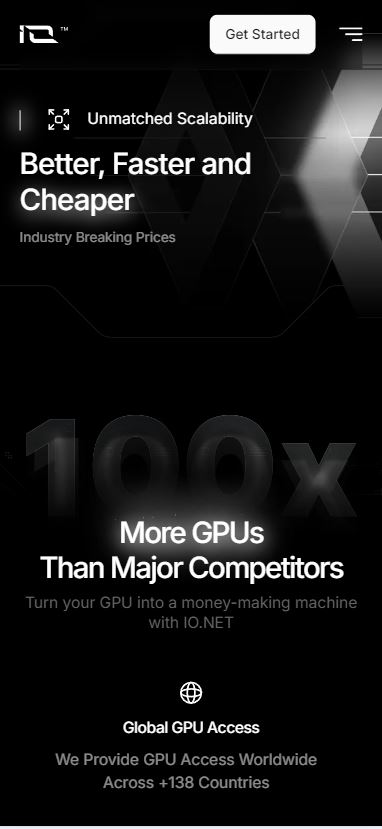









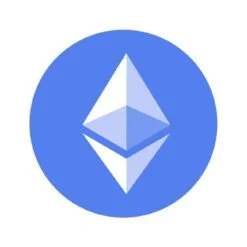







Harran –
Good apps